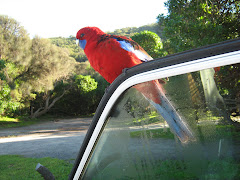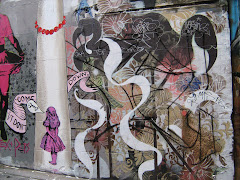
Realist strategies are en vogue again in the Western World at the end of the twentieth and the beginning of the twenty-first centuries (cf. Carrol, 1996). At the same time we are witnessing a revival of moral topics through public and political discourse, and an intensified interest in ethics in general. These two developments are not only closely linked to each other, but are determined by each other. The prevalence of realistic tendencies is caused by moral disorientation. Moreover, this moral disorientation is brought about by the relativistic postmodern tendencies that have dominated the first half of the twentieth century and are still widespread in the humanities and social sciences. In a culture poetical perspective it is furthermore significant that although in theory postmodern and realistic viewpoints are still more or less strongly opposed, in the literary practice realistic narrative strategies have almost completely replaced postmodernistic literature.
Critics even speak of a “moral turn of postmodernism” (Hoffmann/Hornung, 1996 v). Ethics seems to be the culmination point of the conflict of relativistic and realistic concepts of reality. Moreover, this conflict, which I’d like to describe as the most important conflict of late postmodernity, seems to have been solved in literature. New realistic narratives, such as Jeffrey Eugenides novels, use realist narrative strategies while they deal with truly postmodern questions (e.g. the acceptance of a hermaphrodite in Middlesex, Eugenides, 2003). Can the conflict between postmodern relativism and realism be enlightened by a comparison to literature? Is not literature truly reflecting human life and must therefore reflect all its elements? Will philosophy resolve around cultural and literary studies in the future, as Richard Rorty has suggested (cf. Rorty, 2008)?
“Heutzutage ist alles post, als wären wir nicht viel mehr als eine Fußnote zu etwas Früherem, das real genug war, um einen Namen zu haben“ (Atwood, 1992 108). But is not all human conversation a quote of a quote of a quote of a language that was always already there before the speaker opened her mouth? It seems as though the interdependency of all elements and subjects of discourse has simply never been realized as clearly as it is today. Therefore, a tendency to see developments as closely linked to their environment and hence the curious post-ing of everything is en vogue, too. Instead of refering to a supposedly earlier state of wholeness, which has never really existed, it would be more adequate to embrace this more realistic wholeness, which is none in the traditional sense. Yet, it is the only humanly possible wholeness.
This is unfortunately not what has happened so far. Appeals to the lost universality through the plurality roused by the new postmodern perspective have been made without end (cf. e.g. Mersch, n.d.). Even the postmodernists themselves have argued for plurality as the new paradigm. Yet, without the specter of tradional objectivity looming over our cognition we can understand that the only measure lies in the actual way reality is constructed, which is through communication. And in this communication ethical standards are conveyed. Denying the fact that human reality has a moral level seems nothing less than absurd in the face of the recent revival of ethics. Consequently, a true combination of traditional realism’s universalism and postmodernism’s inter-relatedness is needed. This combination is elegantly produced through heterodiegetic narrative, which provides an individual narrator giving her perspective as a standard and at the same time revealing her intersubjectivity through the in-text relations. It is always an in-text world human beings live in, as they enter a pre-set cosmos of language and communicative behavior.
Nevertheless, in these presettings lies the ethical part of human nature, which provides the background for all perception and cognition. How else could it be possible that human beings have moral feelings at all? If there weren’t a moral level to the way we are made, it could simply not show itself in the way we live together. And even if we might not be the objective scientific narrator of traditional realism observing everything from above, we might still be able to develop the sensibility to see through our own words. Because the communicative cosmos is indeed already there before we enter it, but if we all left, it would seize to exist. It is therefore literally the cosmos of our words.
Sources
Atwood, Margaret. Katzenauge (transl. Charlotte Frauke). Frankfurt a.M.: Fischer, 1992.
Carrol, Noel. “Moral Realism in the Age of Postmodernism.” Ethics and Aesthetics – The Moral Turn of Postmodernism. Ed. Gerhard Hoffmann and Alfred Hornung. Heidelberg: Universitätsverlag C. Winter, 1996, 87-96.
Dahlern, Nina von. “Judith Butler und die Möglichkeiten des ethischen Handelns – eine Einordnung der Probleme der Motivation und der Urteilskraft.” Ordnungen des Denkens – Debatten um Wissenschaftstheorie und Erkenntniskritik. Verhandlungen mit der Gegenwart 2. Ed. Ronald Langner et al. Berlin: LIT, 2007.
Eugenides, Jeffrey. Middlesex. London: Bloomsbury Publishing, 2003.
Hoffmann, Gerhard and Alfred Hornung, eds. Ethics and Aesthetics – The Moral Turn of Postmodernism. Heidelberg: Universitätsverlag C. Winter, 1996.
Mersch, Dieter. “Dekonstruktion der Dekonstruktion.” Deutsche Gesellschaft für Semiotik (n.d.) http://www.semiotik.eu/index.php?id=329,23&PHPSESSID=66ei1p6v7kofp28ci8dcpi6d634dpfak (20.05.2009).
Rorty, Richard. Philosophie als Kulturpolitik (transl. Joachim Schulte). Frankfurt a.M.: Suhrkamp, 2008.






Keine Kommentare:
Kommentar veröffentlichen